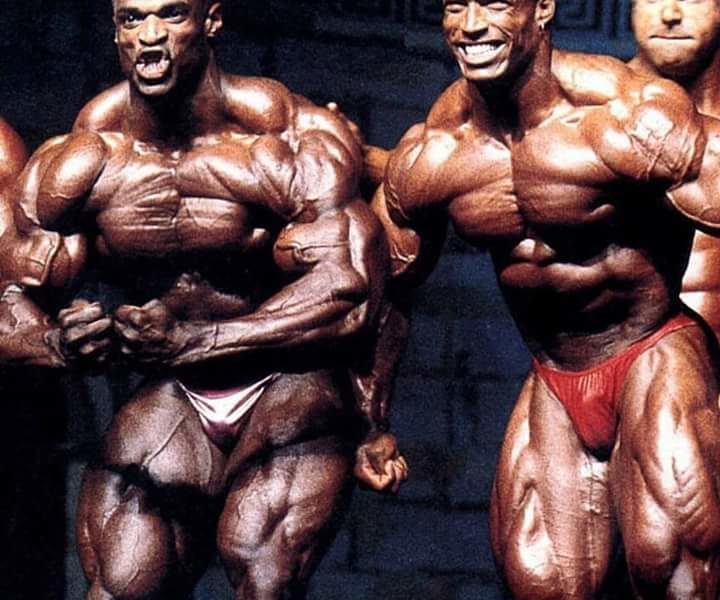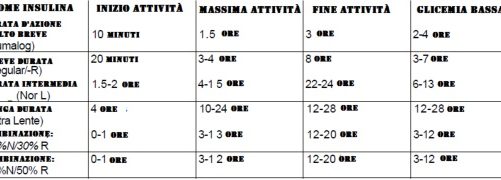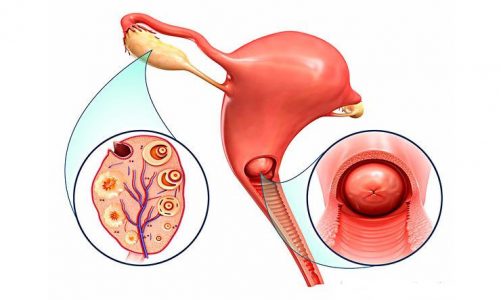BIZARRO review the steroid controversy
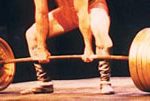 An ideal way to open this article is to talk to you about my conversations with many university and college health and physical education directors who have been helped to teach at their respective institutions. I told them that maybe they don’t want me to take the lesson because I have a slightly conflicting approach. I am 100% objective and honest about the positive and negative effects of steroids. Thinking about it, I realized that something is seriously wrong when objectivity and honesty contradict each other!
An ideal way to open this article is to talk to you about my conversations with many university and college health and physical education directors who have been helped to teach at their respective institutions. I told them that maybe they don’t want me to take the lesson because I have a slightly conflicting approach. I am 100% objective and honest about the positive and negative effects of steroids. Thinking about it, I realized that something is seriously wrong when objectivity and honesty contradict each other!
One of the main reasons for the controversy over steroid use is very simple. There have been “many” people (I stress many), more or less famous, official sports or medical organizations, and even famous steroid experts, who literally changed their minds 180 ° on certain steroid topics; one even changed his mind in an hour! I know what you are thinking: it is impossible for this to happen. But it happened, I discovered it through a long study of steroid research, and now I present them to you in this unique article.
People
Carl Lewis, March 23, 1989 vs. Carl Lewis, March 23, 1989
Carl Lewis is a world-class athletics specialist and anti-steroid activist. Karl’s testimony at the March 23, 1989 Senate hearing is a typical example of a shift in perspective. Lewis said steroids made Ben Johnson the fastest man of all time.
“Steroids have helped him a lot over the 7 year period of his [Ben Johnson’s] career. We are talking about a person who may have become the 50th or 60th in the world to become No. 1 in the world, setting world records ”
But six pages later in the same testimony, he talks about listening to athletes who have stopped using steroids to enhance the fight against a problem they agree with, but focuses on an athlete who has not benefited from steroid use.
“I know an athlete named Diane Williams who had the courage to say” I was on steroids, “with this particular trainer in the United States who” made me take them. ” But he turned around and said, “I did my best to clear,” and “we don’t need steroids.” She managed to spread this message ”
So, according to Karl, because of the steroids Ben Johnson dominated him everywhere, but they interfered with Diane Williams’ performance. Karl, I have a lot of good ideas to share, but if we want to fight this epidemic, we must be objective and persistent. This means not using an example to express a concept, and then using the same example to express the opposite concept. And how can you believe that steroids didn’t help Diane Williams when the man on steroids ran the fastest 100m race of all time? If steroids didn’t work for Diane Williams, I firmly believe it is because she didn’t use them properly.
Dr. Terry Todd, 1977 vs. Dr. Terry Todd, 1983 and 1988
Terry is a leading steroid scientist, professor at the University of Texas and has written many important articles on this topic for Sports Illustrated magazine. as well as for other publications. He used steroids as an aid for powerlifting competitions from 1963 to 1967. In 1977, he wrote the book Inside Powerlifting and said:
“Today, if I wanted to compete again, I would use them (steroids) again.”
In 1983, in one of his Sports Illustrated articles, he said:
“… I wish I never did this (use steroids). I would like to go back and remove this chapter from my life. ”
Then in 1988 he said:
”(steroid use) This is not a moral issue. This is a matter of equal opportunities in the competitive field.
Thus, 10 years after giving up steroids, he will safely return them back. But six years later, condemns their use, but not for moral reasons.
Dr. Fredrick Hatfield, 1983 vs. Dr. Fredrick Hatfield, 1991 and 1994
In the 80s, Fred was a strong proponent of steroids, but in the 90s he completely changed his mind. Here are some direct quotes from his 1983 book Anabolic Steroids: What and How Much:
»Drugs have proven that they still remain and are likely to remain an important source of salvation for people. They have the opportunity to extend life, improve the quality of life and, yes, improve athletic performance.
“So the way (function) of this book is to describe the most common methods of drug use right now”
One of his 1991 books, Hardcore Bodybuilding: A Scientific Approach, appears to have been written by a completely different person. Here are just a couple of conflicting statements he made:
“To these (three) generations of bodybuilders (steroid users), I say goodbye sayonara, adios, goodbye, because they can’t do it in today’s world of natural training”
“I strongly believe that it is possible to achieve success in bodybuilding without using drugs”
I understand that many may appeal to ignorance, but Fred is not one of them. Reading the rest of my book, a huge approximation of these statements has come about. However, perhaps a recent article titled “Kids and Juice,” published in the November 1994 issue of Muscle Development, helps to understand why he went 180 degrees with regard to steroids.
“I vowed that I would never have to deal with the steroid controversy again. After writing the book “Anabolic steroids: what kind and how much?” On this issue, in 1980, I received so much negative criticism from the government and my colleagues that I said, “Enough! I give up! “. Apparently they thought I was justifying the use of steroids. Obviously they never read a book.
Dan Duchaine, 1982 vs. Dan Duchaine, 1995
Dan is the author of The Underground Steroid Handbook, which has basically been a user manual for steroids for athletic performance since 1982. saw many updates. Dan was a steroid dealer in the 1980s, and he also taught many “celebrities” how to quit drug tests. Dan was jailed twice in the 1990s on steroid charges. However, in a personal interview just after his second graduation in 1995, Dan said about the laws in force:
“The idea for Program III is a great idea. This was necessary because steroids were unique in the sense that they were the only unregulated drug that experienced massive aberration everywhere: in warehouses, distributors, clinics, everywhere. I cannot think of another common unregulated drug that has seen the same problem. And, without a doubt, we were losing control of it ”
Dr. William Taylor, 1984 vs. Dr. William Taylor, 1985 and 1987
William seems to be quite knowledgeable about steroids and is often featured on television, in newspapers and magazines. This part is taken from his 1991 book Macho Medicine: The Story of the Anabolic Steroid Epidemic (talks about himself in the third person).
“Perhaps the most powerful statement at a symposium [American College of Sports Medicine, 1984] was made by Taylor. He assessed the situation with “epidemic” anabolic steroids and said that these steroids “cause the same addiction as amphetamines” and that anabolic steroids should be reclassified and controlled ”
However, a year later, in 1985, William was released on probation for three years by the Florida Board of Medical Examiners for prescribing and selling these very “addictive” steroids before he received his medical license. He said he bought a large number of false prescription steroids for independent bodybuilding research. He also said:
“Some of my colleagues said that I should receive a Nobel Prize for this work and what did I get instead? Good robbery ”
This was not actually the first time that William Taylor wrote a false injunction, as he confessed at the 1987 hearing:
“I tried to figure out what this aberration is. I submitted fake prescriptions as an internal doctor requesting human growth hormone from the National Hormone and Pituitary Gland Association and from two private companies that made growth hormone. Within a month, private companies sent me several boxes of growth hormone. I destroyed the growth hormone and refused further supplies. They came straight to my house and I was only an intern in the first year, I was not even qualified
Important newspapers
Berkshire Eagle, April 17, 1989 vs. Berkshire Eagle, April 19, 1989
Bob Goldman, a prominent anti-terrorism activist, stated in the April 17, 1989 issue of The Berkshire Eagle:
“I’ve been at the center of this problem for so long that sometimes I get a little nervous when people say they don’t have concrete evidence.”
Dear Bob, get ready to “get a little nervous.” Gene Haslip, Deputy Assistant Director of the Office of Diversification Control, Drug Control Administration, said in The Berkshire Eagle on April 19, 1989 (just two days later):
Part of the problem is that we don’t have concrete evidence to tell people what the negative consequences are. It is difficult to teach when you do not know the whole truth ”
The Washington Post vs. The Washington Post 14 paragraphs later
Washington Post reporter Liz Hunt said two things in her article “Steroid Use Can Cause Infertility”:
“According to fertility experts, anabolic steroids, drugs taken by hundreds of thousands of athletes to“ increase ”muscle mass, can cause infertility and decrease sexual function for at least several years. after termination of employment ”
But after 14 paragraphs, he writes:
»In most men, sperm production returns to normal within four months after stopping steroid use. But it appears that in a small number of men, the effect on sperm production may persist; in one case the effect lasted up to four years ”
Sports organizations
IAAF, 1981 vs. TAC, 1981
This is one of the classic examples of the lack of consistency in this topic. In July 1981, Ben Plucknett, a discus thrower, tested positive for steroids and was disqualified “for life” from international competition by the International Athletics Commission (IAAF). However, in the same year he was named “Athlete of the Year” by The Athletic Congress (TAC).
NFL
In a study by Gene Upshaw of the NFL Players Association, 75% of players opposed a random steroid test. However, Bill Fralic, the Atlanta Falcons selected 3 times for probation, also conducted a survey claiming that 80% of his teammates favored random steroid testing!
Medical organizations
World Health Organization 1990 v Ben Johnson 1988
In a 1990 study, the World Health Organization stated that:
“… weekly injections of [200mg] testosterone enanthate … can support safe, stable, effective and reversible contraception for at least 12 months”
Even stranger is the fact that the official medical organization claims steroids are “safe” is that the dosage of this study was even higher than the dosage used in 1988 by Canadian sprinter Ben Johnson when he was taken off medals. gold.

Sports organizations and medical and sports organizations
IOC 1976 vs. ACSM 1976 vs. Alan Ryan 1981 vs. ACSM 1984 vs. Goodman & Gilman 1985
1976 was the first year of anabolic steroid trials at the Olympics. I strongly believe they would have done this before, but they didn’t have a test to use. However, the International Olympic Committee only checks things that have the potential to improve performance. Guess who did the exact opposite that same year!
The American College of Sports Medicine is arguably the most prestigious sports organization in the world. Between 1965 and 1976, more than a dozen studies were conducted on anabolic steroids to determine whether these new drugs have characteristics that improve their effectiveness. During their 1976 national assembly, a heated debate arose about this dilemma. Basically, Alan Ryan and Dan Henley thought they weren’t working. However, Levon Johnson (who used them personally), James Wright (renowned expert), Arthur Jones (owner of Nautilus equipment) and Gideon Ariel thought they were working. It looks like Ryan and Henley had more power because in 1977 the ACSM’s official position read:
“There is no hard scientific evidence that extremely high doses of anabolic and androgenic steroids help or hinder athletic performance.”
For William Taylor, this was perhaps the biggest lie in the history of modern medicine. Despite the fact that I have not conducted a complete analysis of all medical research, I absolutely cannot disagree with him. To add insult to crime, in 1981 Alan Ryan wrote an article in the Federation Proceedings titled “Anabolic Steroids Are Fool’s Gold,” which basically undermined the efforts of the International Olympic Committee by saying:
“Doping tests are costly and relatively unproductive and encourage the idea that athletes can benefit from the use of these drugs”
And the story continues. In 1984, ACSM turned to this topic again. However, this time they decided to overthrow their official position. What’s very unusual is the fact that the ACSM has taken a completely different position based on nearly identical scientific research! Now their position is:
“1. With an adequate diet, anabolic and androgenic steroids can increase body weight, often muscle mass.”
“2. In some people, through the use of anabolic and androgenic steroids, it is possible to increase the gains in muscle strength obtained through high physical activity and proper nutrition. »
Now guess what happened in 1985. Goodman and Gilman, in their book Pharmacological Basics of Therapy, made the following statement based on the same research available to ACSM:
»the use of these agents (anabolic steroids) does not increase muscle mass, strength or athletic performance even at very high doses. The increase in body weight that is usually observed (considered stimulated by the use of steroids) is associated with sodium and water retention ”
All I can say is: I love this theme!
Doctor’s Guide
However, in the 1995 edition of the Doctor’s Handbook (I was too lazy to look for a more recent edition!) it says about the listed anabolic steroids that:
“Anabolic steroids do not increase athletic performance”
OR
, This drug has not been shown to be safe or effective for enhancing athletic performance. Due to the potential risk of serious adverse health effects, this drug should not be used for this purpose.
PDR Box indicates they are a Level III Substance controlled by the Anabolic Steroid Control Act 1990
“There are no news of severe androgen overdose”
The section “DOSES AND ADMINISTRATION” says:
»Anabolic steroid use can be associated with many serious adverse reactions, many of which are dose related; therefore, patients should take the lowest possible dose. ”
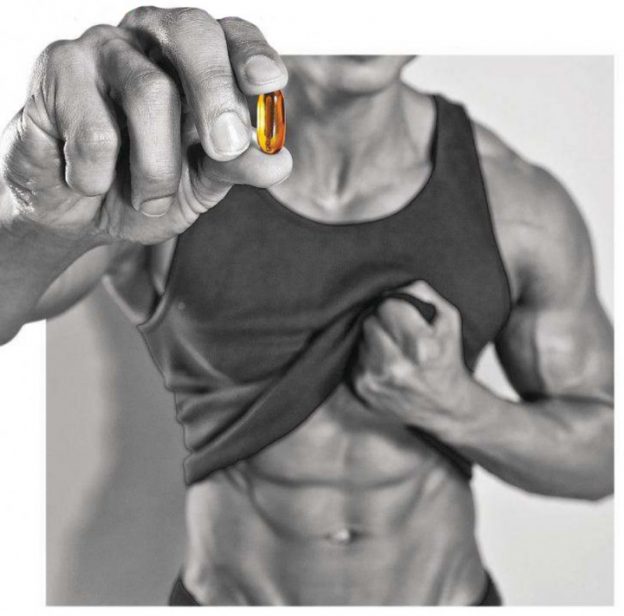
American Medical Association
The current American Medical Association’s Guide to Prescription and OTC Drugs talks about this by describing nandrolone (deca-durabolin) and oxandrolone (Anavar), respectively …
“In violation of the rules of most sports organizations, athletes took nandrolone and other anabolic steroids to increase body weight and muscle strength. But scientific research shows that weight gain can be caused by water retention; increase in strength is unclear ”
“Due to the risk of aqueous suspension of testosterone uk or disqualification from major sports organizations, some athletes have taken oxandrolone or other anabolic steroids to increase body mass and muscle strength. However, some medical research has raised doubts about the reliability of these results. ”
Here are the key points of the AMA’s official position at the April 3, 1989 hearing of the Congress Subcommittee on Anabolic Steroids:
“AMA opposes federal steroid placement legislation under the Controlled Substances Act (CSA) …
Anabolic steroids do not meet statutory criteria for CSA Class I inclusion. Firstly, anabolic steroids have a recognized use in the medical field. In addition, anabolic steroids can be used safely under medical supervision. Second, steroid abuse does not result in the physical or psychological dependence required for inclusion in other sections of the CSA.
Medical reality does not support the inclusion of anabolic steroids in the CSA span> »
Congressional Hearings
After reading all of the congressional subcommittee hearings, I started shaking my head, wondering how our representatives could really understand what is true and what is falsehood. In my opinion, only 10-15%, at most, of those present who testified were both conscious and objective in their testimony!
Jay Moyer
On July 22, 1988, Jay Moyer, representing the NFL at the Anabolic Steroid Classification Hearing, said:
“But why in Group I, which would completely remove Dianabol from the market, depriving it of any medical legitimacy imaginable …”
I don’t want to stop you, Mr. Moyer, but Dianabol was discontinued in 1983 and the FDA removed the generic version from the US market in 1985. This is a great example of the quality of the characters who are called upon to testify.
Robert Howl vs. Transcript
After reading the transcripts of all subcommittee hearings and then of Robert Voy’s Drugs, Sports and Politics, I found a small but very significant difference. Here is an excerpt from a book by Robert Voy:
“By the way, this hearing also brought me a memorable moment. They asked me why athletes use these drugs, despite the risks they pose. My answer was pretty humorous. I said that athletes will use anything if they think they can make a profit. I illustrated this “all it takes to win” philosophy by saying that if you put horse manure in capsules and tell an athlete that taking these capsules three times a day will get big and strong, even though he knew they were filled with horse manure. manure, I would take them … Members of the commission said that I was arrogant and asked me to refrain from these ridiculous comments, especially in front of such a prestigious congressional commission. Terry Todd stepped in to protect me. He not only said that he would use dung tablets if they were available when he competed, but he also said that he would go and buy the biggest and strongest horse he could find to make the tablets himself. ” p>
This is what was recorded at the medical device and drug subcommittee hearing on April 8 and May 1 and 4, 1987:
“ Mister Coat: Dr. Howl, you said the consequences or possible side effects: less muscle strength and less athletic performance. It is obvious that athletes are thinking and experiencing something different, otherwise they would not accept this material.
Mister Howl: … if athletes thought they could put horse manure, excuse the expression, in a capsule and take it three times a day, athletes would accept it. I am not criticizing athletes. I am simply explaining the situation that athletes are in, sacrificing years and years of their lives, their family and everything they have in sports, and I understand that in order to win, they must use performance-enhancing substances. This is a tricky situation. They will do it no matter what we try to do. This is one of the reasons why fraud is one of the main goals of the Olympic Committee’s anti-doping program: to try to ensure fair competition for American public and sports organizations. »
Mr. Todd: I would, for example, buy a horse.
Mr. Coats: If we decide to classify them as Class 2 substances … ”
First of all, Robert Voy very accurately describes the mentality of the athletes, and I also think that Terry Todd’s comment was a great addition. However, I am concerned about how different the two transcriptions of the same dialogue are. Personally, I believe much more in Robert Voy than in our government, at least in this situation. This made me think that at this hearing, other statements were also significantly changed.
Joseph Biden
I believe Joseph R. Biden, the president of the subcommittee charged with what will be anabolic steroid control law, summarized what I am trying to say in this part of the article in many of the statements he made during the April 3rd meeting. 1989
iss President. I have many questions, but I see your two colleagues are raising their hands, Doctor. Katz et al. Yesalis.
Dr. Katz. I’m a different doctor on the jury and Charles may have a position of his own, so I think this hearing is not the place or time for full debate.
President. Yes, it is. I can assure you that this is the start of a long discussion. This is relevant today, and honestly doctors, if you can’t explain your position and say what it is, then how do you expect socialites like me or athletes like the women behind you to be able to accept reasonable decisions about your life?
I am confused by your statement dr. Langston and I am sure he can explain himself better. On the one hand, he says that the reason you don’t want to move in this direction is because there are no major problems, and says that they do not cause physical or psychological dependence. However, on the other hand, you say that this is a serious problem that we must face. If there are no harmful effects, physical or psychological addiction, and this is not a serious problem, why not liberalize them? “(P. 88)
iss President. I would ask you if you can focus on the medical issue as much as possible. And I repeat, if the side effects you just said are reasons for considering them dangerous, why not ban them? I thought you said that these side effects do not exist. I’m confused “(p. 90)
President (Joseph R. Biden). I am confused, because on the one hand you talk about a decrease in libido, which reduces sexual potency, and on the other hand, you say that increases sexual potency “(p. 90)
President. With all due respect, Doctor, I believe you have articulated the AMA’s position well and clearly. But I don’t think the AMA expressed concern about this. In truth, the AMA’s position on this issue is very disappointing. I say this impartially. When I read these articles in the newspapers, I had just left the hospital after undergoing some rather important operations, and now I am a different person, but not enough to accept silence. I can’t help but be honest. I am completely overwhelmed by your testimony “(p. 98)
I understand Joseph Biden. He had a big decision to make with some of the best experts in the country and still had no clear ideas! The bad news is that it doesn’t surprise me at all!
Conclusion
I want to clarify that I did not intend to discredit the people or organizations mentioned in this article, but to demonstrate how complex this topic is.
Because if I criticize them, I must also criticize me, because my ideas have changed slightly on many aspects of this topic. Much of the reason for this change of opinion is that the steroid subculture has changed significantly since the production of this first dose of Dianabol® in 1958. You see, Dianabol® was originally produced in this country in the name of patriotism to help “our” athletes compete on equal terms with these “damned” communists during the Cold War. But it turned out to be a Pandora’s box. Drugs are nothing new in the history of sports, but steroids have raised them to levels that have never been seen before!
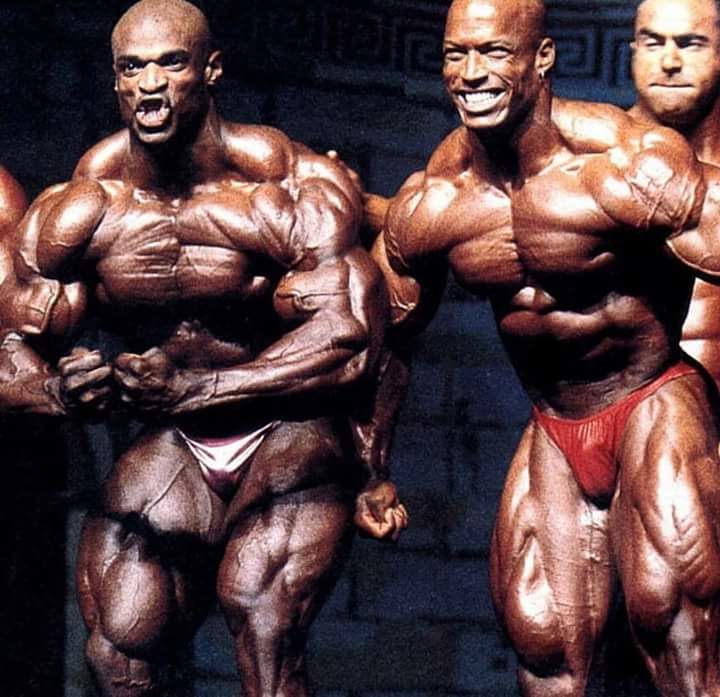
The information in this article is simply evidence of the transition from patriotism to “pandorism”. And yet we haven’t reached the end of the road yet! However, few can imagine what will happen. Many of the best minds in our country didn’t know what to do. But after 40 years of steroid use in the United States, we are seeing it infiltrate many parts of our society. Let’s try to deal with this with foresight. What will Mr. Olympia look like in 20 years? Or, more importantly, what will be the life expectancy of professional bodybuilders? I’m thinking about it! We don’t make up for the same mistakes.
It took us four decades to understand, almost completely, what steroids (and performance-enhancing drugs) did when they produced their own subculture. And in an American society obsessed with victory, sex drive, money and ego, steroids are great, but only if no one knows you are using them! See how cartoon characters have gotten so much more muscular over the past 15 years. See how even the most popular action heroes have grown much more muscular over the past 15 years. After all, when did action heroes test positive for steroids? The answer is they are not controlled!
Watch the radical changes in women’s bodybuilding from the early 1980s to the present day. Their evolution has reached the edge of feminine androgyny to the point that it alienates many people. Women’s bodybuilding should go back to the days of Rachel McLeish and Lisa Lyon with fitness competitions. In fact, if you look at the finalists of the first Miss Olympia, physicists are very similar to the athletes of today. That’s it, a beauty pageant with a focus on athletics. From what I have heard, steroids continue to be used, but only as part of maintaining a woman’s appearance. So what did we get?
Most medicines, taken in moderation and under the supervision of a qualified physician, can provide significant benefits with minimal or no side effects. But the fact is that high-level sports activity has never been, never will, and never will be characterized by moderation. We always try to push everything to the limit, including drugs. The only answer is an effective drug test, not to save the sport, but to save the athletes who participate in those sports! In the era of “extreme” sports, we must first understand our mortal nature!

